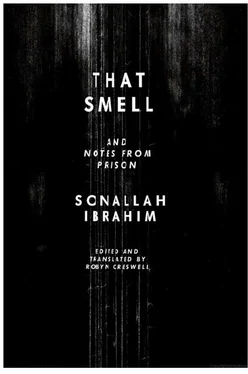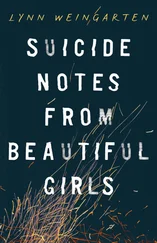Sonallah Ibrahim - That Smell and Notes From Prison
Здесь есть возможность читать онлайн «Sonallah Ibrahim - That Smell and Notes From Prison» весь текст электронной книги совершенно бесплатно (целиком полную версию без сокращений). В некоторых случаях можно слушать аудио, скачать через торрент в формате fb2 и присутствует краткое содержание. Год выпуска: 2013, Издательство: New Directions, Жанр: Современная проза, на английском языке. Описание произведения, (предисловие) а так же отзывы посетителей доступны на портале библиотеки ЛибКат.
- Название:That Smell and Notes From Prison
- Автор:
- Издательство:New Directions
- Жанр:
- Год:2013
- ISBN:нет данных
- Рейтинг книги:4 / 5. Голосов: 1
-
Избранное:Добавить в избранное
- Отзывы:
-
Ваша оценка:
- 80
- 1
- 2
- 3
- 4
- 5
That Smell and Notes From Prison: краткое содержание, описание и аннотация
Предлагаем к чтению аннотацию, описание, краткое содержание или предисловие (зависит от того, что написал сам автор книги «That Smell and Notes From Prison»). Если вы не нашли необходимую информацию о книге — напишите в комментариях, мы постараемся отыскать её.
Notes from Prison
That Smell and Notes From Prison — читать онлайн бесплатно полную книгу (весь текст) целиком
Ниже представлен текст книги, разбитый по страницам. Система сохранения места последней прочитанной страницы, позволяет с удобством читать онлайн бесплатно книгу «That Smell and Notes From Prison», без необходимости каждый раз заново искать на чём Вы остановились. Поставьте закладку, и сможете в любой момент перейти на страницу, на которой закончили чтение.
Интервал:
Закладка:
I wasn’t especially interested in arguing the point. I’d managed to rescue a few of the confiscated copies and began distributing them to writer friends and journalists, asking those with some influence to get the novel released. The late Zaki Murad and I went to see Ahmad Hamrush, then editor-in-chief of Ruz al-Yusuf . Hamrush welcomed me very warmly and showed me proofs of the magazine’s new issue, which included a short essay by him on my novel titled “The Language of the Age.” When I told him about the confiscation he was visibly surprised. He picked up the phone and called his friend Hamdi Hafiz in the Information Bureau; he listened for a moment, and then without replacing the receiver he called the magazine’s printer and requested the article be removed.
The news didn’t reach most writers and journalists in time, however. A number of magazines and newspapers published reviews, all while the book reposed in the storehouses of the Ministry of Interior.
Yahya Haqqi was one of those to whom I gave a copy of the book. We’d become acquainted a few months earlier, following my release from prison in the middle of 1964. I went to his office at al-Majalla , where he was editor-in-chief. He’d opened the magazine’s doors to all writers, especially young ones, and would usher them behind the expensive wooden desk at the center of his room, making do with a comfortable leather armchair placed to one side. The first time we met, I brought him my piece on a recent book by Stephen Spender, the British literary critic. I sat and read the article aloud and Haqqi listened intently, studying me with his intelligent eyes and gently correcting my errors of pronunciation. When I’d finished reading, he said he’d take it. It was the first thing I published after my release from prison and I made ten guineas, which covered a month’s expenses.
I had gone to see Haqqi with a copy of That Smell . He took it from me in a friendly fashion and after reading the title he said, very amiably, that the room was perfumed by the pleasant fragrance emanating from its title.
But it wasn’t long before he realized his mistake and wrote a violent review in his weekly column for al-Masa’ , where he said:
I am still distressed by this short novel whose reputation has recently become notorious in literary circles. It might have been counted among our best productions had its author not shown such imprudence and lack of good taste. Not content to show us his hero masturbating (if the matter had ended there it would have been of little importance), he also describes the hero’s return a day later to where the traces of his sperm lie on the ground. This physiological description absolutely nauseated me, and it prevented me from enjoying the story despite its skillful telling. I am not condemning its morality, but its lack of sensibility, its lowness, its vulgarity. Here is the fault that should have been removed. The reader should have been spared such filth.
So the great writer was asking my opinion of what he called, in his article, my “physiological” style. But while we talked, I began to think about the incident in broader terms. I told him I felt that I was only now learning how to write. Each new book revealed something new to me about the art, exposing the limits of my abilities, my weak points. And it increased my esteem for those writers who boldly confront the blank page, bristling with the weapons of their craft. This is not at all how I felt when I began writing.
When I wrote That Smell , I had just gotten out of prison and was under house arrest, which required me to be at home from dusk to dawn. I spent the rest of the day getting to know the world I’d been away from for more than five years. As soon as I was back in my room, I rushed to record, in quick sketches, all those events and sights that had made an impression on me, that seemed to me completely out of the ordinary. Then I would put the diaries aside and get back to the novel I’d begun in prison, a novel of childhood. I planned for it to consist of a number of independent short stories, connected by the central characters and general theme. I’d finished a few chapters and managed to smuggle them out with the help of my friend Hussein Abd Rabbo, who took them with him upon his own release.
I would turn to the novel but find myself unable to get on with it. I had lost the fire that lit my pen while in prison. The new reality consumed me. And again the familiar question arose: What should I write, how should I write it?
I say “again” because this question was always with me during my time in prison, from the moment I chose to dedicate my life to writing. There were moments I couldn’t have cared less about the first half of the question. In the naïveté and enthusiasm of youth, I rebelled against the idea of a necessary relation between form and content in the work of art (a necessity expounded by Mahmoud al-Alim and Abd al-Azeem Anis in their famous articles,* which we were all very excited by in the fifties). Rebellion was the spirit of the age, after all.
The early sixties were a fertile time in politics, in art, in life. It was the moment when a new middle class emerged in Egypt and other countries of the Third World. These countries, benefiting from a favorable balance of global forces, dealt a decisive blow to the old and collapsing colonial order, and fashioned a dream of social justice they weren’t able to realize. The socialist movement awoke to the evils of idolatrous individualism and seemed prepared to draw the necessary conclusions. Man had walked on the moon. Sexual behavior went under the microscope, revealing important truths — for example, that a female might naturally enjoy up to fifty orgasms in one night compared to two or three for the average poor male.
From behind the walls of al-Wahat Prison, I and my friends, Kamal al-Qilish, Rauf Mas‘ad, and Abdel Hakim Qasim, enthusiastically followed Soviet poets — the young poets Yevtushenko and Voznesensky, as well as the older Tvardovsky — as they exploded conventional forms. We also followed the experiments in spontaneous writing and Op Art in America, and the nouveau roman craze in France. Cairene magazines were full of news about literary experiments all over the world. The regime’s covert, conservative opposition, which actually controlled publishing and media outlets in the country, cleverly promoted the works of Beckett, Ionesco, and Dürrenmatt.
Rebellion was the fuel and experimentalism was the slogan of the day. Naguib Mahfouz put Balzac aside and helped the Arabic novel leapfrog an entire century. New names rose to prominence: Edward Kharrat, Ghalib Halasa, Bahaa Taher, Sulaiman Fayyad, Ibrahim Aslan, Yahya al-Taher Abdallah, and others. I thought I’d found my own path when I discovered Hemingway, by way of two books that managed to breach the walls of al-Wahat. The first was by Carlos Baker and the second was a collection of essays — there was an especially good one by an older Soviet critic whose name I’ve forgotten — analyzing the great American writer’s techniques. I put my faith in these techniques right away (I still do, in certain respects), the most important of which were economy and restraint. Set against the conventionally flabby eloquence of Arabic literature, this “iceberg” style acquired a special sheen. It was under the influence of Hemingway that I began working on my still unfinished novel of childhood.
In the furnished room I rented after my release in the neighborhood of Heliopolis, I would leaf distractedly through the drafts of that novel, asking myself what the point was of writing something that didn’t engage the struggle against imperialism, the effort to build socialism, and all the difficulties these efforts brought in their train: terror, torture, prison, death, personal misery.
Читать дальшеИнтервал:
Закладка:
Похожие книги на «That Smell and Notes From Prison»
Представляем Вашему вниманию похожие книги на «That Smell and Notes From Prison» списком для выбора. Мы отобрали схожую по названию и смыслу литературу в надежде предоставить читателям больше вариантов отыскать новые, интересные, ещё непрочитанные произведения.
Обсуждение, отзывы о книге «That Smell and Notes From Prison» и просто собственные мнения читателей. Оставьте ваши комментарии, напишите, что Вы думаете о произведении, его смысле или главных героях. Укажите что конкретно понравилось, а что нет, и почему Вы так считаете.












